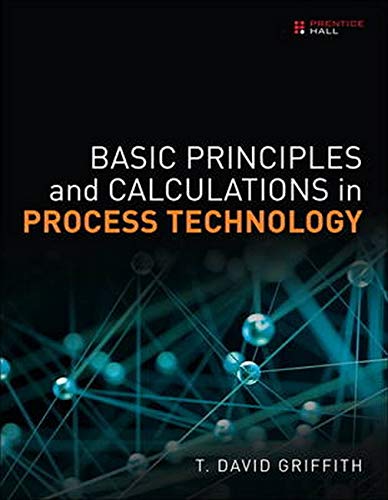

Most ebook files are in PDF format, so you can easily read them using various software such as Foxit Reader or directly on the Google Chrome browser.
Some ebook files are released by publishers in other formats such as .awz, .mobi, .epub, .fb2, etc. You may need to install specific software to read these formats on mobile/PC, such as Calibre.
Please read the tutorial at this link: https://ebookbell.com/faq
We offer FREE conversion to the popular formats you request; however, this may take some time. Therefore, right after payment, please email us, and we will try to provide the service as quickly as possible.
For some exceptional file formats or broken links (if any), please refrain from opening any disputes. Instead, email us first, and we will try to assist within a maximum of 6 hours.
EbookBell Team

0.0
0 reviewsIn Basic Principles and Calculations in Process Technology, author T. David Griffith walks process technologists through the basic principles that govern their operations, helping them collaborate with chemical engineers to improve both safety and productivity. He shows process operators how to go beyond memorizing rules and formulas to understand the underlying science and physical laws, so they can accurately interpret anomalies and respond appropriately when exact rules or calculation methods don&;t exist.
Using simple algebra and non-technical analogies, Griffith explains each idea and technique without calculus. He introduces each topic by explaining why it matters to process technologists and offers numerous examples that show how key principles are applied and calculations are performed. For end-of-chapter problems, he provides the solutions in plain-English discussions of how and why they work. Chapter appendixes provide more advanced information for further exploration.
Basic Principles and Calculations in Process Technology is an indispensable, practical resource for every process technologist who wants to know &;what the numbers mean&; so they can control their systems and processes more efficiently, safely, and reliably.
T. David Griffith received his B.S. in chemical engineering from The University of Texas at Austin and his Ph.D. from the University of Wisconsin-Madison, then top-ranked in the discipline. After working in research on enhanced oil recovery (EOR), he cofounded a small chemical company, and later in his career he developed a record-setting Electronic Data Interchange (EDI) software package. He currently instructs in the hydrocarbon processing industry.